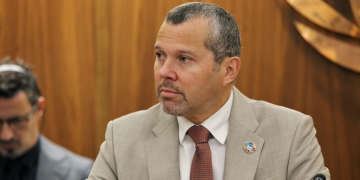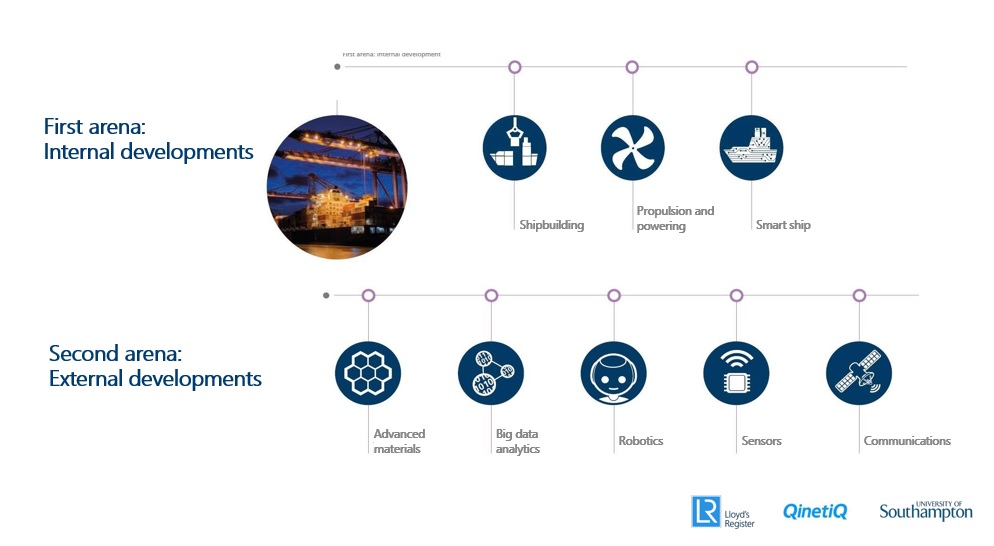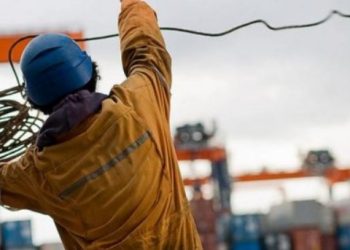During his presentation at the inaugural SAFETY4SEA Cyprus conference, Sotiris Kambanellas, President, YoungShip Cyprus presented key issues with regards to crewing in the 21st century, considering how new technologies are impacting the global shipping industry. In a constantly evolving world, even a more “traditional” industry like shipping is already changing and developing to adapt to new transformational technologies which bring many internal and external developments in the industry. Concluding his presentation, he referred to the future trends of crewing, presenting the results of a recent crewing connectivity survey and shared his advice on how to move forward.
Unmanned vessels, fully autonomous ships, human element disappeared completely, artificial intelligence, drones flying containers etc.: There is a lot of talk out there that this would be the future of shipping very shortly, but I do not expect to see such drastic changes so soon. The general discussion looks more like a marketing campaign nowadays. My point of view is that we will not witness the human element disappearing from shipping any time soon. Artificial intelligence, automation, all new technologies will have a severe impact and are most welcome but they can not replace human element, instead the aim should be to enhance and empower it.
The following image, taken from the study Shipping 2030 by Lloyd’s Register, QinetiQ and the university of Southampton and it shows the combinatorial technologies that are expected to have a huge impact on shipping in the following years:
This is not directly linked with human element, but it is necessary to understand how the actual vessels operation and the direction the industry is moving. The effect and impact of these changes on crewing will be severe. People trying to adapt with the use of these technologies, follow, take advantage of and even comply with them as the regulatory aspect should be addressed as well. Taking it a step further, how the crew will be able to work with advanced material, smart and robotic mechanical equipment, utilize 3D printers capabilities, work with smart sensors and big data analytics? These technologies are already here but their involvement and impact in shipping is expected to be exponentially bigger, so we need to consider if we are prepared.
From the recent ‘Crew connectivity survey 2018’, produced some interesting results and figures: When it comes to automation, 53% have seen one or more of their roles became automated the last two years and 98% of those that they saw their roles being automated, felt that there was a positive change. This signals that seafarers are adaptive. They are not resisting to change, they are adapting to it. The idea for companies is to see how to facilitate them to keep up with the changes.
What is quite worrying is the response on cyber security, not as the specific threat but as to how the industry reacts to burning issues: The clear lack of training in this aspect was what shocked me and it is an issue to address, because this signals how we, as an industry, treat all new technological changes. For example, out of the study, 49% of the seafarers are unaware of their employers’ cyber policies and 41% thinks their responsibility lies just with the master. Also, 47% of seafarers in 2018 had become a target of cyber-attack. The big issue is that 85% have not received any training! In the past years Cyber attacks has been one of the major risks in the industry in terms of both economic terms but also safety of the vessel and crew and we as an industry have failed to take real steps and involved the crew in mitigating this great risk.
Also, when it comes to the question “What are the training needs of the seafarers?”, the top two -not surprisingly- categories were: 60% feel they do not have the adequate knowledge and an access to technology understanding and 65% would like refresher training on equipment handling, with equipment on board is changing rapidly, we should not expect crews to adapt and change? From the time they went to the nautical schools until now, all the equipment of different things has changed: ECDIS, BWTS and so many others. How can we assure that they feel confident today to do their job without overwhelming all the new responsibilities and all the requirements?
Learnability -we didn’t know that this word existed until recently. It is considered to be one of the key skills necessary for the new generation and new era, not only shipping, but focusing in shipping, we have to go to the process of unlearning and relearning, because we have specialized crew, highly qualified professionals which we have to empower with the right tools and skills to do their job efficiently in the changing environment.
Talking about the unmanned vessels for example, I do not expect that we will have completely unmanned vessels. Autonomous, yes. Most likely the number of crew onboard will be reduced, but we will still require the same types of work that we are having now, in the future. For example, we will still need technical support (e.g. engineers) with different skills than today, perhaps with high level of engineering understanding and be able to work with advanced tools, be able to have daily communication with manufacturers, get instructions, run diagnostics, restart and reboot systems. Similarly in navigation the need to work with more advanced equipment while still the same general principles applying.
So, it is not a matter of eliminating the human element, it is about realigning the focus, keeping up to date. There are huge changes and challenges coming on our way and we need to adaptive and proactive. According to the abovementioned study, we fail big in responding to cyber risk failing to properly train 85% of our crew on cybersecurity, so as an industry we need a more collective approach and involved our crews, one of the most important stakeholders.
Above text is an edited article of Sotiris Kambanellas’ presentation during the 2018 SAFETY4SEA Cyprus Conference
You may view his video presentation herebelow
The views expressed in this article are solely those of the author and do not necessarily represent those of SAFETY4SEA and are for information sharing and discussion purposes only.
About Sotiris Kambanellas, President, YoungShip Cyprus
 Sotiris Kambanellas is the Business Development Manager (Europe) for Fleet Management Ltd, a leading Shipmanagement company with +450 vessels under full management. An experienced Shipping professional with knowledge and experience in Business, Finance, and Controlling with Shipowning and Shipmanagement companies. Holder of a degree in Accounting and Finance, the professional title ACCA and member of the prestigious Institute of Chartered Shipbrokers (ICS). Actively involved with the international Shipping industry participates as the President of YoungShip Cyprus, sub-committee member at Cyprus Shipping Chamber, Advisory Board member at MaRITeC-X and other organizations. Passionate about new technologies and disruptive ideas, always welcoming and embracing change.
Sotiris Kambanellas is the Business Development Manager (Europe) for Fleet Management Ltd, a leading Shipmanagement company with +450 vessels under full management. An experienced Shipping professional with knowledge and experience in Business, Finance, and Controlling with Shipowning and Shipmanagement companies. Holder of a degree in Accounting and Finance, the professional title ACCA and member of the prestigious Institute of Chartered Shipbrokers (ICS). Actively involved with the international Shipping industry participates as the President of YoungShip Cyprus, sub-committee member at Cyprus Shipping Chamber, Advisory Board member at MaRITeC-X and other organizations. Passionate about new technologies and disruptive ideas, always welcoming and embracing change.




























































